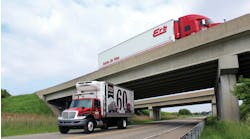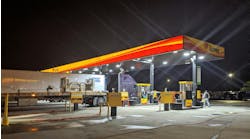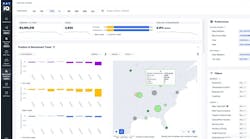The 2007 EPA emission standards have set into motion a push and pull between fleet owners, who are trying to make sure new standards don't economically damage their business, and the environmental community, which aims to ensure all engines run cleaner.
“One of the challenges fundamental to this issue is that the truck industry is motivated by profitability, and retrofitting doesn't give you freedom from tolls or other financial benefits,” notes Allen Schaeffer, executive director of the Diesel Technology Forum. “The Clean Air Act doesn't have the authority to make manufacturers do anything.”
That is true in 49 of the 50 states, but California has been a noteworthy exception to the rule. By invoking state health and safety codes, California has required 100% of diesel fuel imported and produced in the state to be ultra-low-sulfur diesel (ULSD) since June 1, 2006; the rest of the country has until June 1, 2010 to comply.
The environmental community has continued their efforts to make the trucking industry more energy-efficient through SmartWay, a federal initiative focused on clean air solutions that can be implemented without adversely affecting a company's bottom line.
SmartWay's website describes the program as “a voluntary partnership between various freight industry sectors and EPA that establishes incentives for fuel efficiency improvements and greenhouse gas emissions reductions. By 2012, this initiative aims to reduce between 33- and 66-million metric tons of carbon dioxide (CO2) emissions and up to 200,000 tons of nitrogen oxide (NOx) emissions per year.
While it's unlikely that fleets will voluntarily fully retrofit their engines, the early success of the SmartWay program, with UPS and Fed Ex among the hundreds of companies involved, is an indication fleets are becoming aware they can clean the air without emptying their pockets.


